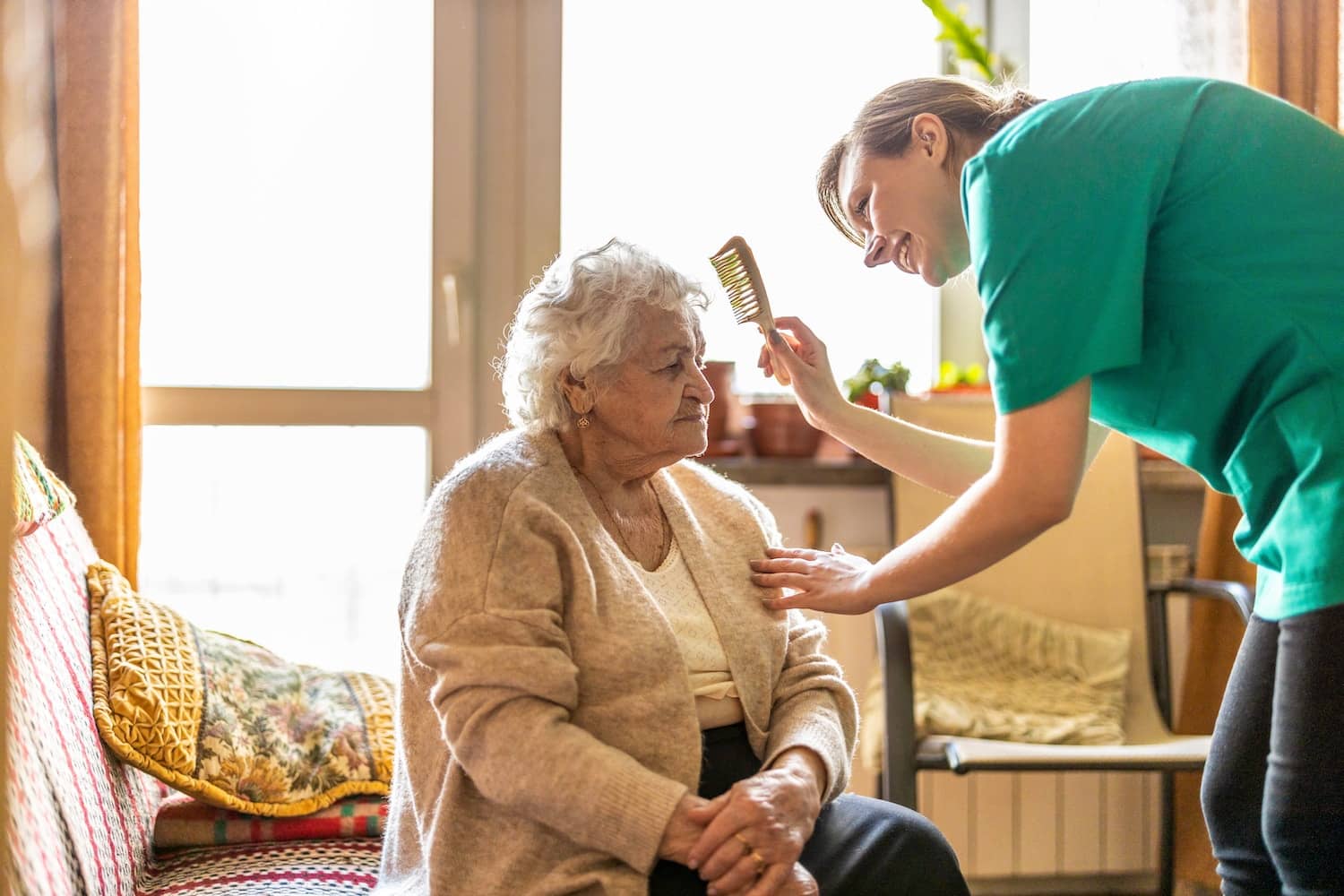Effective Dementia Care Techniques for a Better Lifestyle
In the world of mental deterioration care, the implementation of reliable techniques is important for improving the top quality of life for both people influenced by the illness and their caretakers. Comprehending the unique stages of dementia enables tailored interventions that attend to the evolving demands of individuals-- from promoting cognitive interaction in the onset to making sure self-respect in late-stage care. The significance of interaction techniques and a helpful setting can not be overemphasized. What specific methods can be embraced to foster an atmosphere of compassion and connection throughout this tough journey?
Recognizing Mental Deterioration Phases

In the very early phase, people may experience mild memory loss and trouble with acquainted jobs. Treatment strategies need to focus on maintaining self-reliance and giving cognitive excitement. In the late stage, individuals might shed the capability to need and interact help with daily tasks.
Identifying these phases allows caregivers to adjust their methods and offer support that lines up with the individual's present needs, inevitably promoting much better management of the problem and enhancing the total caregiving experience. Comprehending mental deterioration stages is consequently a fundamental aspect of efficient mental deterioration treatment.
Communication Strategies
Efficient interaction is a vital element of dementia care, especially as the disease proceeds via its different phases. As cognitive capabilities decline, it comes to be necessary to adjust communication techniques to meet the demands of people with mental deterioration. Using clear, straightforward language is vital; caregivers need to stay clear of complex sentences and jargon, opting rather for uncomplicated, succinct expressions.
Non-verbal communication plays an equally substantial role. Facial expressions, gestures, and tone of voice can communicate warmth and understanding, typically boosting verbal messages. Keeping eye call and an open position promotes a feeling of link and safety, motivating people with dementia to involve more fully in discussions.
It is additionally helpful to hold your horses and permit adequate time for actions. Individuals might need extra time to procedure details and formulate their thoughts. If comprehension shows up doing not have., repeating or rephrasing questions may be essential.
Last but not least, concentrating on the person's rate of interests and personal history can assist in a lot more purposeful communications. Participating in acquainted topics can evoke positive memories and emotions, additionally improving the interaction experience (dementia care charlotte). By employing these techniques, caretakers can substantially enhance the high quality of interactions, advertising dignity and regard for individuals dealing with mental deterioration
Creating a Safe Environment
Creating a risk-free environment for individuals with mental deterioration is essential to promoting their health and self-reliance. A well-designed area can dramatically lower the dangers of crashes and boost the high quality of life for those affected by this condition.
Lights plays a crucial role too; making use of all-natural light any place feasible and integrating night lights can assist individuals navigate their surroundings securely. Additionally, classifying spaces and essential things can aid memory and alignment, minimizing confusion and anxiousness.
It is additionally essential to produce an acquainted atmosphere by individualizing the area with pictures or cherished things, which can evoke positive memories and a sense of belonging.
Incorporating furnishings that is both useful and comfy adds to an encouraging ambience, permitting individuals to take part in everyday click for info activities easily. Eventually, a risk-free setting not only safeguards against physical threats but likewise cultivates a complacency, which is important for the emotional health of those coping with mental deterioration.
Involving Tasks and Regimens
Involving activities and organized routines are essential components in the care of individuals with dementia, as they promote cognitive function, psychological stability, and social communication. These tasks must be tailored to the individual's interests, capabilities, and stage of cognitive decrease. charlotte care home. Easy, repetitive jobs such as gardening, crafts and arts, or food preparation can offer significant involvement, enabling individuals to utilize their skills while promoting a sense of success
Establishing a daily regimen helps develop a predictable setting, which can minimize anxiety and confusion. This structure can consist of designated times for dishes, tasks, and rest, making sure a balanced technique to every day life. Including social interactions right into these regimens, such as group activities or seeing household, additional boosts emotional well-being and battles sensations of isolation.
Additionally, exercises, such as dancing or walking, not only promote physical wellness however additionally promote psychological involvement. Encouraging involvement in neighborhood occasions or assistance groups can offer extra chances for socializing. In general, the combination of organized regimens and interesting tasks is necessary in enhancing the lifestyle for people with mental deterioration, fostering independence and dignity while addressing their distinct requirements.
Supporting Caregiver Well-Being
Taking care of people with mental deterioration can be a requiring and mentally tiring experience, making it imperative to focus on the wellness of here are the findings caregivers. Caretakers frequently encounter high levels of tension, stress and anxiety, and physical exhaustion, which can cause exhaustion otherwise addressed suitably. To sustain their health, it is vital to apply a complex approach.
First, providing caretakers with access to education and learning and resources can empower them with strategies to take care of day-to-day obstacles. Support groups, both in-person and online, offer a platform for sharing experiences, promoting a sense of area, and minimizing feelings of isolation. Furthermore, break treatment solutions allow caregivers to take essential breaks, permitting them time to reenergize and go to to their very own health demands.
Moreover, encouraging caretakers to engage in self-care techniques-- such as regular workout, healthy and balanced eating, and mindfulness-- can significantly enhance their resilience. Advertising open communication regarding their sensations and difficulties with relative or professionals likewise assists reduce emotional worries.
Final Thought
To conclude, reliable dementia care approaches encompass a thorough understanding of the illness's phases, the application of clear communication methods, the facility of a risk-free atmosphere, and the promotion of organized regimens and engaging activities. In addition, focusing on the well-being of caregivers is important to maintaining high quality care. By integrating these techniques, the general high quality of life for people with mental deterioration can be dramatically enhanced, promoting a helpful ambience that promotes self-respect and psychological wellness.
In the realm of dementia care, the implementation of effective strategies is vital for boosting the high quality of life visit this site for both individuals influenced by the condition and their caretakers. By employing these techniques, caretakers can substantially enhance the high quality of interactions, advertising dignity and respect for individuals living with dementia.

Caring for people with mental deterioration can be a demanding and psychologically taxing experience, making it important to focus on the health of caregivers.